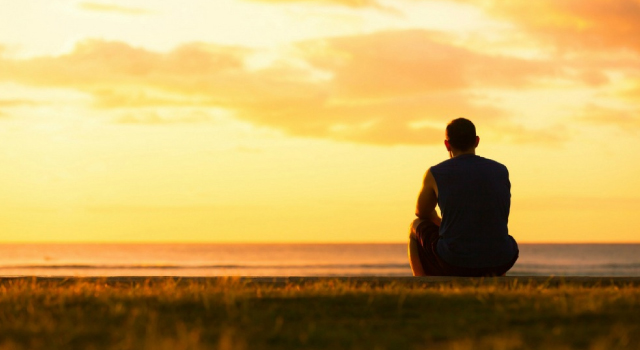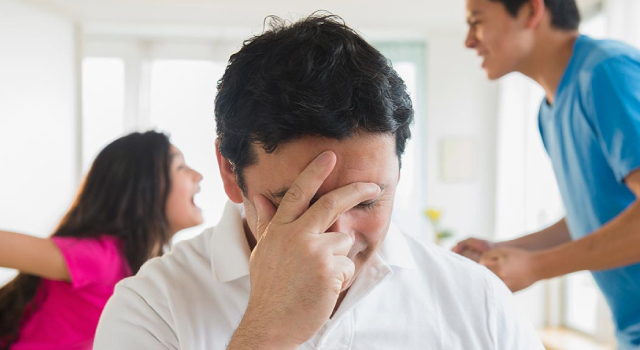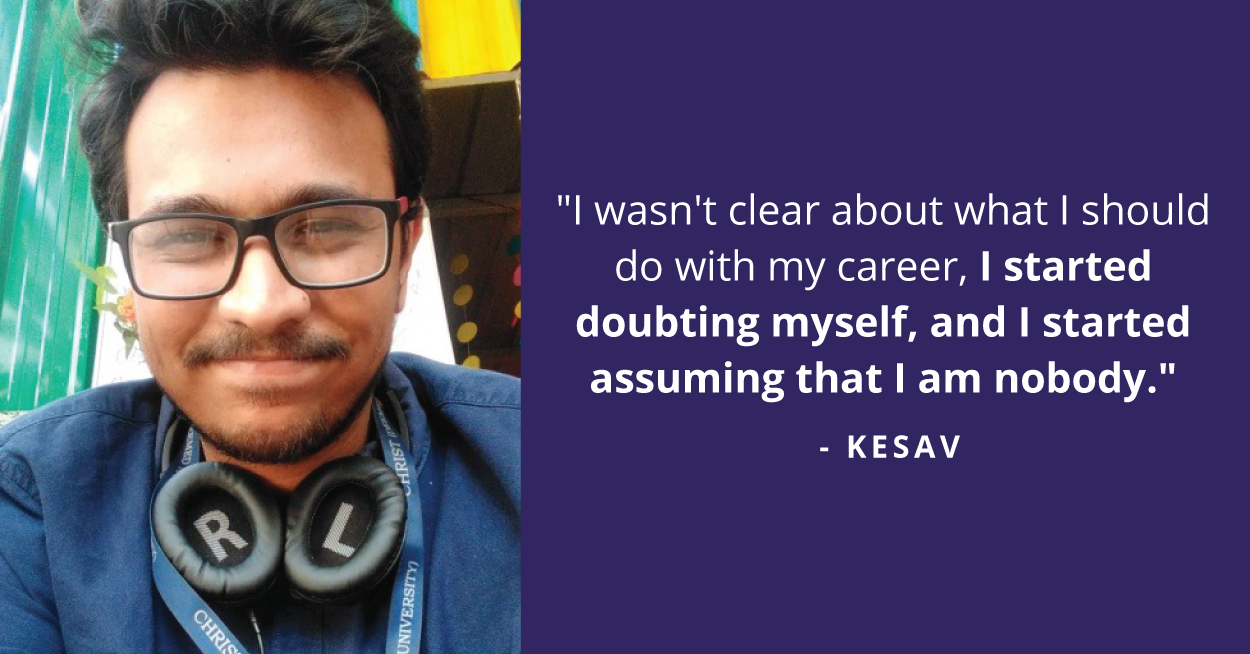How To Deal With Coronavirus Blues
The Coronavirus pandemic and the resulting safety measures have completely taken over our lives. The uncertainty of it is unsettling, and as was discussed in our earlier article, adverse effects on our mental health are real.
We’ve all read about the precautions to take to avoid contracting the virus – washing hands, social isolation, etc. But are there any must-take precautions to cope with the mental toll this situation might have? Let’s have a look:
1. Fear and Anxiety
Fear & anxiety are of course the predominant emotions that most people are facing. It’s a pandemic we’re dealing with after all. Amid all the uncertainty of this situation that we find ourselves in, it’s natural to experience the fear of you or your loved ones contracting COVID-19, fear of running out of essentials, fear of job loss, etc. The constant bombardment of news reports and whatsapp forwards doesn’t help either.

Some simple anxiety busting tips are:
Pop a chewing gum into your mouth
Chewing gum increases blood flow into the brain thus reducing anxiety and increasing alertness
Squeeze a tennis ball/smiley balls/rubber ball
When we’re anxious, our body muscles also get tense. By squeezing a stress ball, we forcefully tense and then relax some of the muscles. This relaxing of muscles in turn induces a state of relaxation in the mind thus reducing anxiety
Take a cold shower
The vagus nerve is the longest nerve in the human body, connecting our brains to many major organs including the heart, lungs, intestines, stomach, etc. It happens to be a key component of the parasympathetic system. A cold shower stimulates the vagus nerve and thus increases parasympathetic activity thus reducing anxiety.
One very effective way to deal with fear & anxiety is the “Write & Burn” technique:
Step 1
Take some pieces of paper and a pen.
Step 2
For each worry that is troubling you, pick up a piece of paper and write your worry down on it in as much detail as possible. Let your thoughts flow out through your pen.
This step in itself is tremendously powerful in terms of anxiety & fear management. A 2011 study conducted by the University of Chicago found that writing down worries leads to a reduction in worrying. According to the study, this is because it leads you to “reappraise the situation” i.e. it makes you think of what needs to be done rather than worrying about what you might lose. This of course leads to reduction of anxiety as well since anxiety is the brain’s natural response to worry.
Step 3
Burn/Tear these pieces of paper one by one.

You may be puzzled by this step. Why burn? See the thing is, when you write down a worry, it also helps bring all your emotions associated with that worry to the surface. When you burn each worry, it will help you let go of those emotions, thus fostering positivity in the face of your challenges
If you’re in need of an instant calming down, mindful breathing is another excellent and proven way to help you do just that. The following video is a companion guide to practice this super effective technique for anxiety relief:
2. Insomnia
Lockdown and limited movements can have the surprising effect of causing insomnia due to a disturbed circadian rhythm aka your body clock. As discussed in our earlier article, an extremely important factor that helps maintain our circadian rhythm is sunlight. Staying indoors all day in an underlit setting can throw the rhythm off, thus leading to insomnia.

Here are some steps you can take to maintain/restore your circadian rhythm:
– Step out into your lawn/verandah/terrace/balcony in the morning to get some of that bright morning sun. Not only will it give you an energy boost but will also reset your circadian rhythm
– Try to spend your day at a place with as much natural light as possible. Morning sunlight, and it’s slow dimming through the day helps keep our rhythm on track.
– Avoid consuming caffeine in the later parts of the day. Studies confirm that consuming caffeine anywhere between 0-6 hours before bedtime has a significant effect on sleep quality and your circadian rhythm.
– Stop using electronic gadgets with LCD/LED at least 2 hours before bedtime. These screens all emit blue light which disrupts the secretion of melatonin, a hormone that regulates your circadian rhythm.
If you’ve been struggling to fall asleep, the “Red Balloon” exercise can help correct that. Here are the steps to practice it:
Step 1
Lie down in a comfortable position on your bed, and place your head on your stomach
Step 2
Visualise a red balloon inside your stomach.

Step 3
When you inhale, allow your stomach to expand as much as possible. When you exhale, contract it. Imagine that the balloon expands and contracts as you inhale and exhale.
Step 4
Start subtracting 7s from 100 in your mind continuously. Continue to repeat Step 3 this whole time
You will soon start nodding off to sleep. Sleep tight.
Another excellent but slightly exercise that can revolutionise your sleep is progressive muscle relaxation. Use the following companion video guide to practice the same:
3. Loneliness & Boredom
Being stuck at home, completely alone in some cases, with nary a social life, loneliness and boredom are a given. So how to overcome this without breaking the lockdown?

We asked our Experts this very question. All of them gave us the same answer: social distancing doesn’t mean social isolation. They recommend that you stay in touch with your near and dear ones over audio and video calls.
In fact studies show that just hearing the voice of a loved one helps us feel connected and reduces loneliness and boredom. Here are some tips to help you “virtually socialise”:
– Connect with your family over calls as regularly as you would on any normal day
– Schedule video calls with your friends at the times when you would normally hang out in the evenings or over weekends

– Schedule interesting activities with your friends such as playing PUBG, CS:GO, Online UNO
– Have an online cooking competition, or maybe a jamming session
4. Productivity & Concentration
The lockdown has forced most of us to work or study from home. But this isn’t something most of us are really used or might even be comfortable with. It may be pushing you out of your comfort zone thus making it difficult to concentrate on work leading to a fall in productivity.

Some tips to help you nip this challenge in the bud are:
1. Create a designated workspace for yourself at home
Research insights point towards a private space where you can do intensely focused work with no distractions like tv, excessive external noise, a messy kitchen etc. This kind of a setup makes sure that you don’t have to set up your workspace from scratch and thus not needing to adjust to a new environment every time you sit down to work.
2. Mimic your regular non-lockdown workday
This suggestion comes from a source no less than the Harvard Business Review. Research from a 2015 HBR article found that professionals who mimic their regular work schedule tend to get more work done on a daily basis.
An exercise to practice every morning to improve your concentration skills is the side to side eyeballing technique. Here are the steps to practice the same:
Step 1
Sit down in a comfortable posture
Step 2
Without moving your head, slowly move your eyeballs to the left and hold for 5 seconds

Step 3
Now move your eyeballs to the right and hold for 5 seconds
Step 4
Repeat steps 2 through 3 for 3 to 5 mins.
This exercise improves the communication between the two hemispheres of your brain thus giving your concentration power a boost.
Also, If you ever find your mind wandering, here’s a video guide to a simple to technique that can help you focus better on your work:
5. Tech/Substance Addiction
Psychologists and Psychiatrists, both in India and abroad, are reporting a rise in excessive usage of tech(gaming, surfing, binge watching, etc.) and/or excessive consumption of psychoactive substances (alcohol, cigarettes, other substances) by people during the lockdown. It could be to deal with boredom or the anxiety of the current circumstances. But the risk of this use turning into abuse and addiction is very high.

To avoid building a dependence on any of these activities, Psychologists recommend using the 5 D’s:
Delay
If you feel the urge to use a substance or your smart gadget, delay giving into that urge by 15 mins and occupy yourself with some other activity. You’ll find that the urge will have grown weaker in those 15 mins
Distract
Distract yourself alternative activities, particularly those that jog your mind and keep it active, such as solving jigsaw puzzles, sudoku, online quizzes, etc.. This will prevent you from developing unhealthy patterns that may develop into addiction.
Drink Cold Water
Drinking cold water will help you stay hydrated, make your mind and body feel good, and reduce the urge to use a substance/gadget
Deep Breathing
Deep breathing has the power to slowly bring your mind and body to their most natural relaxed state. This means they help you destress which in turn will dampen your urge to use a substance/gadget
Discuss
If nothing else seems to be working, talking about your urges with someone can help. You can call a friend or loved one, or you can connect with an Expert for the same.
If you do feel the urge to indulge in any unhealthy activity, give grounding a try. Here’s a companion guide that takes you through the steps to practice the same:
6. Parenting
For some, the lockdown has made the most difficult job of all even harder, parenting. Being shut indoors together, with no external help and with work, house chores to balance as well, parenting can get a bit overwhelming for many.

The solution? The 5C’s of parenting, an approach that is highly recommended by Psychologists. These have been discussed in greater detail in our earlier article on “Parenting in Lockdown Times”
If things get too overwhelming at any time, try practicing this 4-7-8 breathing technique to give your mind a much needed break:
7. Tensions at Home
Being forced to stay confined to your home with your fellow home residents can lead to you getting into each other’s way thus leading to tensions amongst you.

To deal with this unsavoury situation, experts suggest that it’s important to give each other space. Just because you’re under the same roof, doesn’t mean that you need to spend every hour of the day in each other’s company. Do your own thing. Set times to spend time with each other – lunch, tea, post work hours, etc. To further strengthen your bond, Experts have the following suggestions:
– Cook something new together
– Share chores to make sure there’s equal distribution of household work
– Have a movie night complete with popcorn and your favourite beverages
– Play a boardgame
Also, if at any point you feel the tensions rising, don’t react. Instead, use the following creative visualisation technique to calm down:
These are but some of the numerous coping strategies for the various challenges that you may find yourself facing in the midst of this pandemic. Also, all this, of course, is easier said than done. But you’re not in this alone. Our Experts are here for you 24×7. You can connect with them at any time for more personalised guidance.





